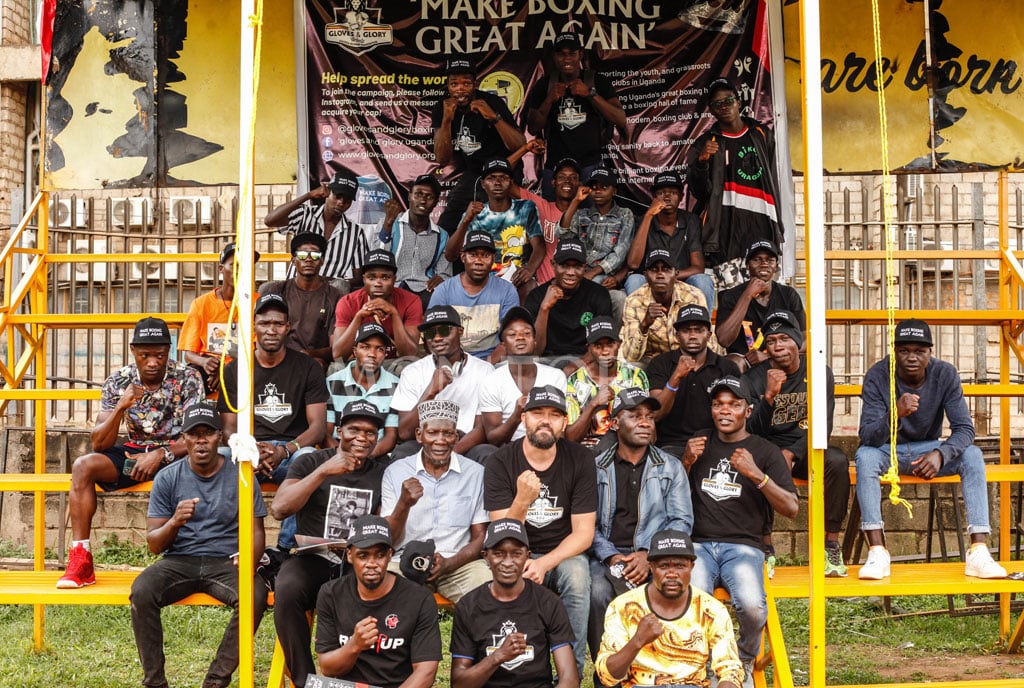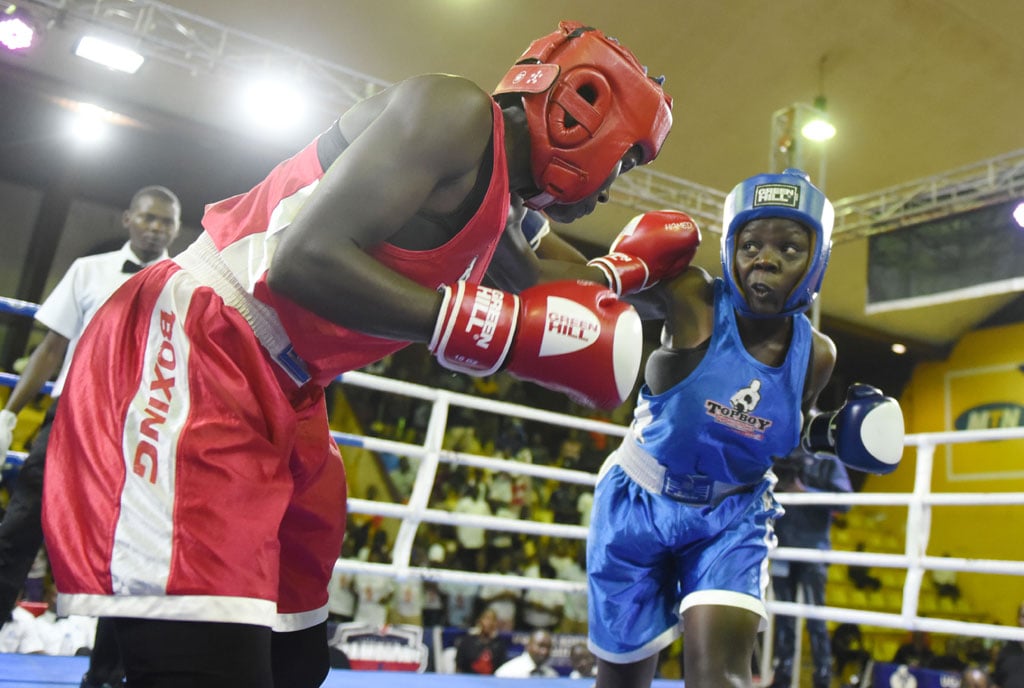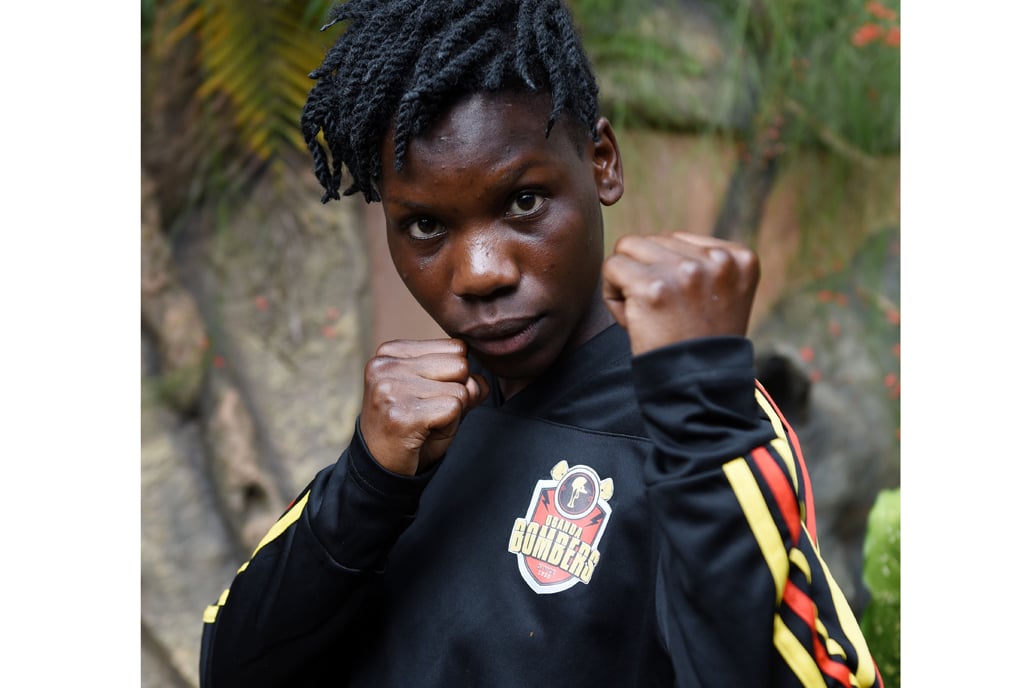Gloves and Glory to make boxing great, again

Ready. Former world champ Kalule, Warry and Bazira at the launch. PHOTO/ABDUL NASSER SSEMUGABI
What you need to know:
- The future was promising. But in the last 40 years Uganda’s glory started waning like a candle in a violent wind.
After Ayub Kalule and Joseph Nsubuga won gold and bronze at the inaugural World Boxing Championship in 1974 in Havana, Cuba, Uganda finished joint fifth with Puerto Rico in the world, only behind Yugoslavia, United States, Soviet Union and Cuba.
Coupled with two gold and four silver medals at the Commonwealth Games in Christchurch, New Zealand, among other conquests, Uganda finished the year fourth in the world boxing rankings—the best ever.
The future was promising. But in the last 40 years Uganda’s glory started waning like a candle in a violent wind.
“These days, I don’t know our position in the world rankings,” wonders Kalule, who, in 1979, became Uganda’s first pro to win a world title. “Many things went wrong and they should be fixed.”
Such is the motivation behind Gloves and Glory, a charity organisation that seeks to complement the current structures to revive Uganda’s glory in the world of sweet science.
Marcus Warry, the charity’s founding director, cited the story of John ‘The Beast’ Mugabi, the last Ugandan to win an Olympic medal (in Moscow 1980) before turning pro under British promoter Mickey Duff and trainer George Francis, first in London, then USA.
“I would like to see more Ugandans follow in Mugabi’s footsteps,” said Warry at the launch of the Make Boxing Great Again campaign at Legends Rugby Club, Lugogo Thursday.
Warry says when he first came to Uganda in 2018 he was impressed by the humble conditions in which Ugandans train yet they manage to win some medals at the international stage, against well facilitated opponents.
That’s the genesis of his friendship with Juma Miiro, who had won bronze at the 2018 Commonwealth Games in Gold Coast.
Three years later, Warry knows more about Uganda’s rich boxing heritage history and feels the urge to do something to revive the glory days.
He found willing partners in twin coaches Hassan and Hussein Khalil at East Coast Boxing Club—Miiro’s grandfathers—and Eddie Bazira, a promoter with wealthier experience here and in Europe.
In 2015 Bazira, the CEO Baltic Pro Box Promotions, held the Fighter Awards, a legends’ ball that brought Mugabi back home after nearly 30 years. But he lacked the resources for his bigger vision. Warry thinks that worry is half solved.
In what their mini manifesto, Gloves & Glory intends to: support the youth, and grassroots boxing clubs in Uganda; celebrating Uganda’s great boxing history and initiate a boxing hall of fame; building a modern boxing club and arena in Uganda; restoring sanity in amateur boxing and creating brilliant boxing events, to generate international awareness and funds.
Already, they raised $2000, and bought food for vulnerable households in the Naguru slums during the lockdown; organised the Kent-Katende Memorial event last month and are paying school fees for teenage boxer Paul Raskara.
Warry promises to use his British connections to attract funding through sponsorship and sports tourism and tapping into wealthy British boxers with African connections to support the initiative.
But whatever they plan, they need the blessing of the boxing leadership. Salim Uhuru, head of the professional arm, attended the event and promised “all the support.” But the Uganda Boxing Federation (UBF), the amateur body, was absent.
“We invited UBF to this event because we need them on board,” Warry said. “And I want to categorically say that we want our relationship with them to be positive.”
Bazira, soft-spoken but steadfast, added: “We are not fighting UBF or anyone, we are volunteers trying to complement their efforts by, say, sourcing additional funds to improve the welfare of clubs, among others.”




